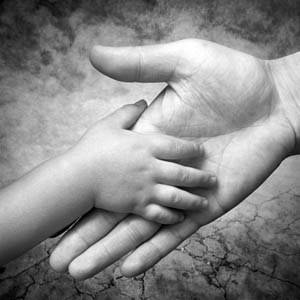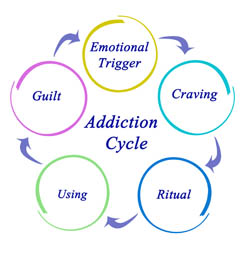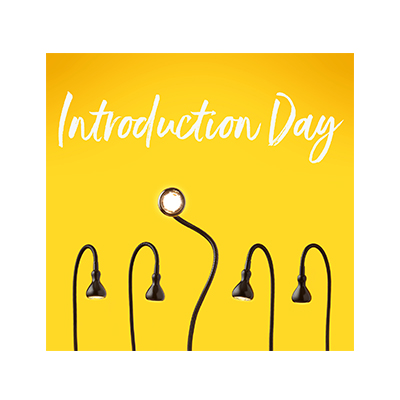 Susan McGrath is a Hoffman Graduate and psychotherapist with experience across a wide range of issues including trauma, phobia and depression. She works with adolescents, couples and individuals helping with all areas of relationship and has a particular interest in a personality profiling system called the Enneagram. In this article we asked her to talk about one of the root causes of so many patterns that we see on the Process: the role of attachment in co-dependency and addiction.
Susan McGrath is a Hoffman Graduate and psychotherapist with experience across a wide range of issues including trauma, phobia and depression. She works with adolescents, couples and individuals helping with all areas of relationship and has a particular interest in a personality profiling system called the Enneagram. In this article we asked her to talk about one of the root causes of so many patterns that we see on the Process: the role of attachment in co-dependency and addiction.
The term codependent was first used to describe the behaviour of partners of alcoholics: those who unconsciously enabled the addict to keep drinking because it reassured the co-dependent that they were needed.
Since then it’s become clear that codependency is much more widespread than that. All of us are on the spectrum of codependency to some degree. The question is: to what extent is it affecting your life and relationships? Take a moment to reflect on the questions below and notice if there are areas where you could benefit from greater awareness.
10 Signs of Codependency
- Are you a people-pleaser, finding it hard to say no to others?
- Do you frequently feel depressed, despairing, angry or resentful and fear expressing these feelings, especially in a close relationship?
- Do you get satisfaction from jumping in and taking care of others and solving their problems?
- Do you find it hard to know what you’re feeling or what your needs are?
- Would you describe yourself as a perfectionist?
- Do you seek approval from others to feel good about yourself and bolster your self esteem?
- Do you get close to someone very quickly, sharing intimate details before you really know them or do you become obsessed with them?
- Do you control your partners’ clothes, what they say, eat or do or who they befriend?
- Do you neglect friends, family and hobbies when you’re in a relationship?
- Are you needy and clingy in relationships or cool and detached?
Co-dependency and addiction often run in families, although it’s not always the case. The key question to ask yourself is: is this trait impacting negatively on my life? If so, help is at hand.
What causes codependency?
Codependency starts in childhood with our family of origin and stems from how our dependency needs were or weren’t met. Unlike many other species a human child needs closeness and attentiveness over many years to grow into a healthy adult. When there’s less than nurturing parenting, for whatever reason, a child begins to internalise the belief that they’re not good or loveable enough. Shame and anxiety is created and the scene is set for codependency to take hold.
 One of the strengths of the Hoffman Process is exploring these childhood wounds. Through tried and tested techniques you work through the pain, relieving the symptoms which can vary from anxiety, depression, failure to get into a relationship or to multiple failed relationships, to name just a few.
One of the strengths of the Hoffman Process is exploring these childhood wounds. Through tried and tested techniques you work through the pain, relieving the symptoms which can vary from anxiety, depression, failure to get into a relationship or to multiple failed relationships, to name just a few.
Sometimes our wounding is obvious when there’s been abuse, whether that’s sexual, physical, emotional or spiritual. At other times it’s intergenerational where the victims from one generation pass their unconscious pain onto the next. This kind of wounding is created almost invisibly, leaving bewilderment and misery in its wake, because abuse may not even be part of your personal experience yet addiction and codependency can still be the result. You may be baffled, unable to work out why you feel so depressed or anxious especially if you’re living an enviable life. Nonetheless you cannot shake off a chronic sense of dissatisfaction.
Another common cause is when the caring heirachy is reversed. In the natural order of things the parent takes care of the child’s needs but in some cases the child becomes the carer to the parent. In this scenario, the child’s needs go underground in order for the child to survive. This can set in motion a lifelong need to take care of others while repressing personal needs. The scene is set for codependency to take hold.
From one extreme to the other
One of the confusing aspects of codependency is that it manifests itself in ways that, on the surface can seem contradictory. For example, people with codependency can suffer from chronic low self esteem or be grandiose and arrogant. They can be chaotic or perfectionistic. They can be needy and dependent or completely self contained.
The original wounding leaves us exposed to unbearable feelings which overwhelms the immature nervous system of the child so the child adapts in order to cope. There’s a need to sustain the emotional attachment to caregivers at all costs. This means the child will do anything to keep that bond and so becomes ‘less than’ or ‘better than’ in order to survive and fit in.
 ‘Less than’ means they become identified with the victim position of shame and low self esteem. A lack of healthy boundaries set them up for unhealthy adult relationships. The ‘better than’ position is in response to feeling inadequate. This is covered over with a grandiose arrogant aloof attitude where everyone else is inferior, but it’s usually a thin veneer to cover the pain.
‘Less than’ means they become identified with the victim position of shame and low self esteem. A lack of healthy boundaries set them up for unhealthy adult relationships. The ‘better than’ position is in response to feeling inadequate. This is covered over with a grandiose arrogant aloof attitude where everyone else is inferior, but it’s usually a thin veneer to cover the pain.
Both positions are painful in different ways. Addictions are a common way to cope and stay as far away from the pain as possible. Alcohol, sex, romance, love, eating disorders, drugs and shopping are all common ways we self-medicate our core pain. Many people remain functional while abusing substances or activities but over time things can deteriorate until the consequences become serious.
It’s usually at the point where problems can no longer be denied that people seek help. We’re lucky that we live in a society where we understand these processes better than ever before and help is available. There’s always hope.
Attachment and Codependency – How They Relate
As I’ve said, we’re all somewhere on the spectrum and it’s possible to be codependent in one aspect of your life and not in others. We could be codependent in romantic relationships but more than capable of setting healthy boundaries at work, so it’s not clear cut. We now know that codependency and attachment issues go hand in hand.
If we look at the attachment aspects, the bond that’s created between a parent and child is life or death. The immature child cannot rationalise that a parent is abusive because they were an alcoholic. The child internalises that something is wrong with them instead and anxiety is created when there is not a consistent and secure connection to the parent. This is the compromise the child makes in order to stay connected and keep the parent in the good position.
However, attachment injury takes its toll. We tend to repeat this injury unconsciously in adult relationships in the subconscious hope that it can be healed but frequently it means we’re attracted to unavailable or abusive partners in order to stay with the devil we know.
 Insecure attachment underpins codependency and can show up in three ways. We’re either anxious so we cling or we’re avoidant so we become self sufficient. The third way is described as chaotic, where we flip between self-sufficiency and anxiety.
Insecure attachment underpins codependency and can show up in three ways. We’re either anxious so we cling or we’re avoidant so we become self sufficient. The third way is described as chaotic, where we flip between self-sufficiency and anxiety.
This is what sets up the pursuer/distance dynamic of adult intimate relationships which emerges after the honeymoon period is over. It’s very painful and mystifying – especially if nothing is known about codependency.
We tend to relate through fear rather than love so we try to control ourselves and our partners, children, colleagues to feel safe. We let people violate our boundaries and we do the same to others. We give to others to get the love we need but are infuriated when others don’t reciprocate.
It doesn’t have to be like that, it is possible to recover.
Tips for relieving the symptoms of Codependence
- Focus on your relationship with yourself. What do you need, want, feel, think? You have everything you need inside yourself to thrive
- Establish a meditation practice. This supports you in finding out who you really are and how to take care of yourself through the connection with your spiritual self.
- Inform yourself. Reading Facing Co-dependency by Pia Melody is a great place to start
- Attend a 12 steps CoDA (Co-Dependents Anonymous) meeting.
- Practice gratitude and forgiveness – especially self forgiveness.
- Do assertiveness training and/or read about it – and put it into practice
- Practice saying No or Yes depending on how you defend yourself. No for the people pleasers and Yes for those whose boundaries are rigid
- Self care is key. Eat, sleep, exercise spend time in nature.
- Let go of control and over functioning. Be kind and gentle to yourself and those you love
- Do the Hoffman Process:)
- Find a therapist who works with codependency.
Susan’s training includes Psychosynthesis, Thought Field Therapy (TFT), the Enneagram, Imago Relationship Therapy and emotionally focussed couples therapy. For more visit: susanmcgraththerapy.com
Edited by Nikki Wyatt






 Sign up to receive monthly newsletters from Hoffman
Sign up to receive monthly newsletters from Hoffman